Bawas Presyo
Sen. Bam to gov’t: Don’t sacrifice children’s welfare for revenue
Alarmed by report that children’s nutrition is affected by inflation and the Tax Reform for Acceleration and Inclusion (TRAIN) Law, Sen. Bam Aquino stressed that their health should be prioritized over government revenue.
“Nakakabahala na mga bata ang pinakatinding tinamaan ng TRAIN Law at mataas na presyo ng bilihin,” said Sen. Bam, referring to a report by Ateneo de Manila University researchers that Filipino children were deprived of needed nutrients due to high inflation from February to September.
“Huwag ipagpalit sa dagdag na buwis ang kalusugan ng ating mga anak,” added Sen. Bam, one of four senators who voted against the ratification of the TRAIN Law.
Reiterating his willingness to work with the government to lower prices of food and other goods, Sen. Bam said there is an urgent need to suspend and roll back of the excise tax on petroleum products imposed by the TRAIN Law.
Sen. Bam submitted Senate Bill No. 1798 or the “Bawas Presyo sa Petrolyo Bill” last May to suspend the excise tax on fuel under the TRAIN Law and roll it back to December 31, 2017 levels.
The only measure in the Senate that seeks to amend the TRAIN Law, Senate Bill No. 1798 aims to suspend the collection of excise tax on fuel once inflation rate surpasses the government’s inflation target for three consecutive months.
Furthermore, Sen. Bam said the government should ramp up the rollout of the social mitigating measures under the TRAIN Law, including the unconditional cash transfer program, Pantawid Pasada Program and even the 10-percent discount on NFA rice.
Sen. Bam also called on the government to fully implement Republic Act 11037 or the Masustansiyang Pagkain para sa Batang Pilipino Act, which aims to eradicate hunger and undernutrition by providing free nutritious meals to public day care, kindergarten and elementary school students.
Sen. Bam pushed for the passage of the measure as principal sponsor and co-author during his term as chairman of the Committee on Education in the 17th Congress.
Sen. Bam to gov’t: Ibasura na ang buwis sa petrolyo!
Sen. Bam Aquino urged the government to support initiatives that aim to stop excise tax on fuel under the Tax Reform for Acceleration and Inclusion (TRAIN) Law, saying time is running out as lawmakers have just 15 session days remaining for 2018.
“Wala nang panahon. 47 days na lang ay Pasko na at mayrooon na lang labing-limang session days para maisulong ang ating panukala, pati na ang resolusyon ng minorya at sulat ng mayorya ukol sa pag-alis ng excise tax sa petrolyo,” said Sen. Bam.
“Nagkakaisa ang Senado sa hangaring mapababa ang presyo ng petrolyo at bilihin para sa kapakanan ng ating mga kababayan na nahihirapan na sa mataas na presyo ng bilihin,” added Sen. Bam.
Sen. Bam filed Senate Bill No. 1798 or the Bawas Presyo sa Petrolyo Bill last May while minority senators filed Joint Resolution No. 15 calling for the suspension and rollback of excise tax on fuel. Majority lawmakers, for their part, wrote President Duterte asking to suspend excise tax on fuel under the TRAIN Law.
Congress will resume session on Monday (Nov 12), and will end its session on Dec. 12 (Wednesday).
“Bigyan natin ng konting ginhawa ang mga mahihirap na nalulunod sa taas presyo,” Sen. Bam emphasized, adding that suspending excise tax on fuel under TRAIN Law is the best Christmas gift that the government can give to the Filipino people.
“Pamasko niyo na po sa mahihirap ang pagtanggal ng TRAIN sa petrolyo. Galaw-galaw na po, magpa-Pasko na,” said Sen. Bam, one of four senators who voted against the ratification of the TRAIN Law.
The only measure in the Senate that seeks to amend the TRAIN Law, Senate Bill No. 1798 aims to add a safeguard to ensure the suspension in the collection of excise tax on fuel once inflation rate surpasses the government’s inflation target for three consecutive months.
According to Sen. Bam, removing the excise tax on fuel would not only bring down prices of fuel, but also prices of fares, food and other goods in the market.
Sen. Bam added that removing the excise tax on petroleum would translate to additional P87 per day income for public utility drivers (PUV), which they can use to purchase two kilos of rice for their family.
Sen. Bam urges Congress to work together on Bawas Presyo Bill as inflation remains high
With inflation unchanged and still beyond the projected target range, Sen. Bam Aquino stressed that government must work together to help Filipinos still suffering from high prices of food and other goods.
“Mataas pa rin ang presyo at umaaray pa din and mga pamilyang Pilipino. Bigyan natin sila ng kahit kaunting ginhawa ngayong Pasko,” said Sen. Bam, one of four senators who voted against the ratification of the Tax Reform for Acceleration and Inclusion (TRAIN) Law.
“Magtulungan na tayo upang suspindihin at i-rollback ang buwis sa petrolyo. Ipasa na natin sa Kongreso ang Bawas Presyo Bill at ayusin ang TRAIN Law,” added Sen. Bam who filed Senate Bill No. 1798 or the Bawas Presyo sa Petrolyo Bill last May.
Sen. Bam renewed his call to the government to support his measure, which he believes could help lower prices of petroleum products and the prices of goods in the market.
“Pinagtulungan na natin noon ang batas na libreng kolehiyo. Ngayon, itong Bawas Presyo Bill naman sana ang Christmas gift natin sa ating mga kababayan,” urged Sen. Bam.
Sen. Bam’s Senate Bill 1798 is the only measure in the Senate that seeks to amend the TRAIN Law. If passed, it will add a safeguard to ensure the suspension in the collection of excise tax on fuel once inflation rate surpasses the government’s inflation target for three consecutive months.
The senator said that reducing the cost of petroleum products would not only affect fare prices but would also have an indirect effect on the prices of food and other goods in the market.
Also, Sen. Bam added that removing the excise tax on petroleum would translate to additional P87 per day income for public utility drivers (PUV), which they can use to purchase two kilos of rice for their family.
Sen. Bam: Pass Bawas Presyo Bill, fix TRAIN Law on top of wage increase
Sen. Bam: Additional 87 pesos per day for jeepney drivers if TRAIN excise tax is repealed
Sen. Bam Aquino stands by his “No” vote on the Tax Reform for Acceleration and Inclusion (TRAIN) Law, continuing to push for the repeal of the excise tax on fuel for the benefit of drivers of public utility vehicles (PUVs) and commuters.
“Hindi sapat ang suspension. Lubusin na natin ang pagtanggal ng excise tax sa petrolyo ng TRAIN Law. Nalulunod na sa taas presyo ang mga Pilipino, lalo na ang mga driver ng mga jeep, tricycle at iba pang PUV,” said Sen. Bam, one of four senators who voted against the ratification of TRAIN Law.
“Kung tatanggalin ang excise tax sa petrolyo sa TRAIN Law, hanggang P87 kada araw ang dagdag sa kita ng ating mga jeepney driver,” added Sen. Bam.
The added income is enough for PUV drivers to buy two kilos of rice per day for their families, Sen. Bam pointed out.
Since May 2018, Sen. Bam has been pushing for the suspension and rollback of excise tax on fuel under the TRAIN Law through his Senate Bill No. 1798 or the Bawas Presyo sa Petrolyo Bill.
The measure aims to suspend the collection of excise tax on fuel once inflation rate breaches the annual inflation target over a three-month period.
In addition, the bill also seeks to roll back the excise tax on petroleum products to December 31, 2017 levels or before the TRAIN Law was implemented.
Sen. Bam also joined other minority senators — Minority Floor Leader Franklin Drilon and Sens. Francis Pangilinan, Risa Hontiveros, Antonio Trillanes and Leila de Lima – in filing Senate Joint Resolution No. 15, which seeks to suspend the excise tax under the TRAIN Law and mandate the rollback of levy on fuel to December 31, 2017 rates.
Sen. Bam: Excise tax suspension is a win for Filipinos, illustrates value of independent voice
The government’s plan to remove the excise tax on petroleum products in January 2019 is a win for Filipinos and an indication of the importance of having an independent voice in government, according to Sen. Bam Aquino.
“Panalo ang pamilyang Pilipino sa pagsuspindi ng dagdag buwis sa gasolina, diesel at iba pang produktong petrolyo sa Enero,” said Sen. Bam, who has been pushing for the suspension of excise tax since May 2018.
“Patunay din ito sa halaga ng pagkakaroon ng magkakaibang boses sa gobyerno – pati na ang minorya o oposisyon. Mahalagang pakinggan ang iba’t ibang panig na mayroong solusyon sa problema ng bayan,” added Sen. Bam, referring to his call for suspension and rollback of the TRAIN Law despite the hardline defense of the administration’s economic managers.
Sen. Bam stressed that there’s more to be done as he reiterated his push to rollback the excise tax on fuel under the Tax Reform for Acceleration and Inclusion (TRAIN) Law to December 31, 2017 rates.
“Magandang unang hakbang ito. Pero kailangan nang aksyunan ang Step 2 – tuluyan na nating alisin ang buong excise tax sa petrolyo na pinataw ng TRAIN Law. Ipasa na ang Bawas Presyo sa Petrolyo Bill at joint resolusyon ng Minority Bloc,” stressed Sen. Bam, one of four senators who voted against the ratification of the government’s tax reform program.
On May 10, 2018, Sen. Bam filed Senate Bill No. 1798 or the Bawas Presyo sa Petrolyo Bill, seeking to suspend the collection of excise tax on fuel once inflation rate breaches the annual inflation target over a three-month period.
Sen. Bam’s measure also seeks to rollback the excise tax on petroleum products to December 31, 2017 levels or before the TRAIN Law was implemented.
In addition, Sen. Bam and other minority senators — Minority Floor Leader Franklin Drilon and Sens. Francis Pangilinan, Risa Hontiveros, Antonio Trillanes and Leila de Lima — submitted Senate Joint Resolution No. 15 seeking to suspend the excise tax under the TRAIN Law and mandate the rollback of levy on fuel to December 31, 2017 rates.
In their resolution, the minority senators urged their fellow lawmakers to support their initiative to alleviate the plight of Filipinos, especially the poor.
“Magtulungan na tayo’t magtrabaho para lutasin ang krisis sa presyo at bigyan ng ginhawa ang mga kababayan nating nalulunod sa gastos,” said Sen. Bam, who also delivered three privilege speeches on the negative effects of TRAIN Law and excise tax on fuel.
Sen. Bam: Senate must act now, roll-back excise tax on fuel before Christmas
The increase in self-rated poverty is yet another indication that the Senate should move on legislative action to address rising prices of food and other goods by suspending the excise tax on fuel under the Tax Reform for Acceleration and Inclusion (TRAIN) Law, according to Sen. Bam Aquino.
“Kailangan na natin umaksyon. Solusyunan natin ang krisis sa presyo para tulungan ang mga naghihirap na pamilya,” said Sen. Bam, who has been pushing for the passage of the Bawas Presyo sa Petrolyo Bill in the Senate.
In its third quarter survey, the Social Weather Stations (SWS) noted an increase in self-rated poverty in September to 52 percent or 12.2 million families. This is four points higher than the 48 percent or 11.1 million families in June 2018.
Sen. Bam urged colleagues to support the minority’s Joint Senate Resolution No. 15, which aims to suspend the excise tax under the Tax Reform for Acceleration and Inclusion Law and rollback the tax on fuel to December 31, 2017 rates.
“Huwag na nating antayin na ma-certify urgent ito. Umaksyon na po tayo nang kusa. Kung kailangang mag-special session tayo sa Senado habang may session break, gawin na po natin ito,” said Sen. Bam.
Sen. Bam said a collective action of the Senate will send a clear message to Malacanang on the stand of the Upper Chamber to ease the burden of Filipinos, especially the poor, from the high prices of food and other goods.
“This is a chance to show in word and in action that the Senate wishes to ease the burden of our countrymen and remove the excise tax on petroleum products,” stressed Sen. Bam.
“Seventy four days na lang po, Pasko na! Ito na siguro ang pinakamagandang regalo na maibibigay natin sa pamilyang Pilipino,” said Sen. Bam.
On Wednesday, minority senators – composed of Minority Floor Leader Franklin Drilon and Sens. Francis Pangilinan, Risa Hontiveros, Antonio Trillanes, Leila de Lima and Sen. Bam — submitted Senate Joint Resolution No. 15.
In their joint resolution, the minority senators stressed the need for the urgent intervention of the Congress of the Philippines to mitigate the inflationary effects of rising fuel prices by suspending the increases in excise tax on fuel under RA No. 10963 or the Tax Reform for Acceleration and Inclusion (TRAIN) Law.
For his part, Sen. Bam filed Senate Bill No. 1798 or the Bawas Presyo sa Petrolyo Bill as early as May 10, 2018, seeking to suspend the collection of excise tax on fuel once inflation rate breaches the annual inflation target over a three-month period.
Sen. Bam’s privilege speech on gas prices and suspending TRAIN’s excise tax on petroleum products
Sen. Bam: Admin, opposition should plot together to suspend excise tax on gasoline
Sen. Bam Aquino emphasized that the government and the opposition should plot together to suspend the excise tax on gasoline and address the high prices of food and other products.
“Instead of pointing fingers, let’s work together to suspend the additional tax on fuel scheduled for January 2019,” said Sen. Bam in reaction to Malacanang’s repeated claims that members of the LP are plotting to oust President Duterte.
Instead of focusing on silencing the opposition, Sen. Bam insisted that the government should immediately address the problems at hand, such as high prices of food and rice and lack of job opportunities.
“Hindi makakatulong sa mga Pilipino ang away at gulo. Magtulungan na lang tayo para arestuhin ang taas-presyo. Simulan natin sa pagsuspindi ng dagdag buwis sa petrolyo,” said Sen. Bam.
Earlier, Sen. Bam called on the government to suspend the additional P2 excise tax on petroleum products in January 2019 if prices of oil in the global market remain at $80 per barrel in the next three months, as directed by a safeguard in the TRAIN Law.
Sen. Bam is also pushing for the passage of Senate Bill No. 1798 or the Bawas Presyo Bill, which will suspend the collection of excise tax on fuel once inflation rate breaches the annual inflation target over a three-month period.
Sen. Bam has passed a total of 27 laws, 10 as a member of the opposition. He helped the administration pass the landmark law making college education free in public universities and colleges. He is the principal sponsor of R.A. 10931 or the Universal Access to Quality Tertiary Education Act.


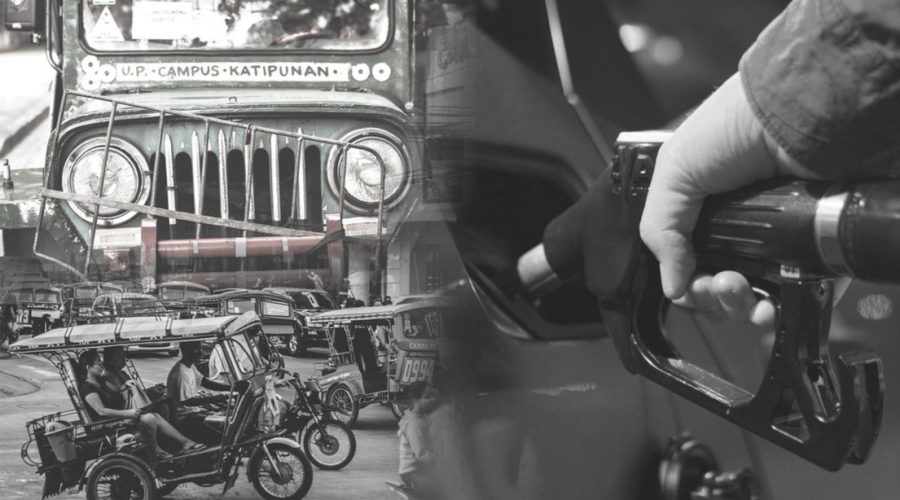
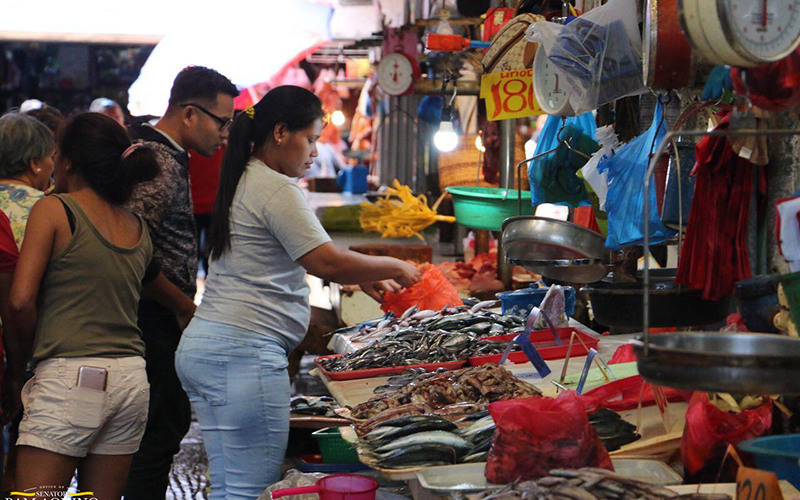
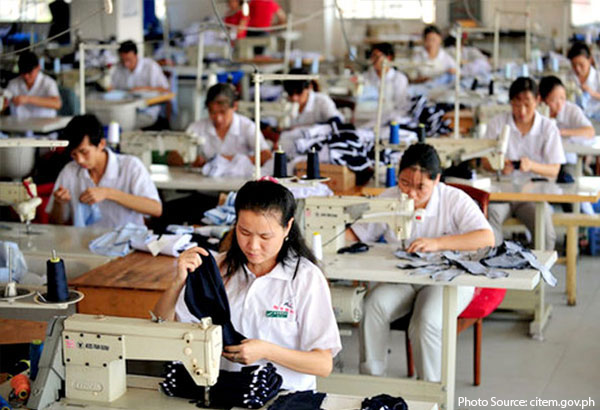
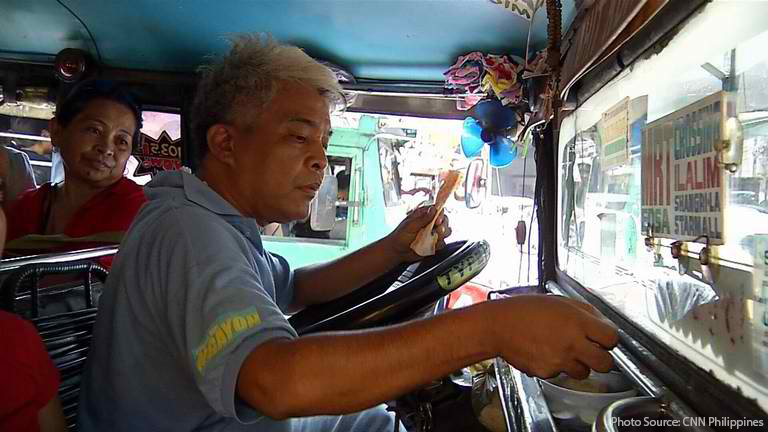
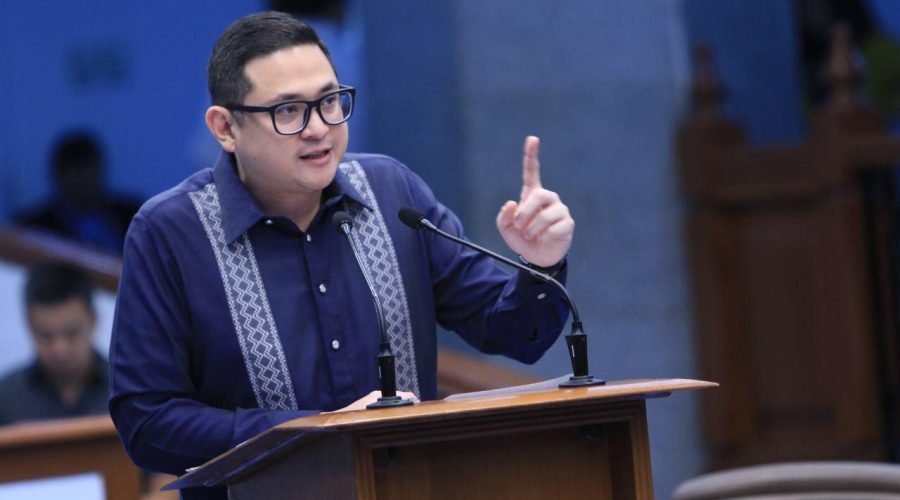
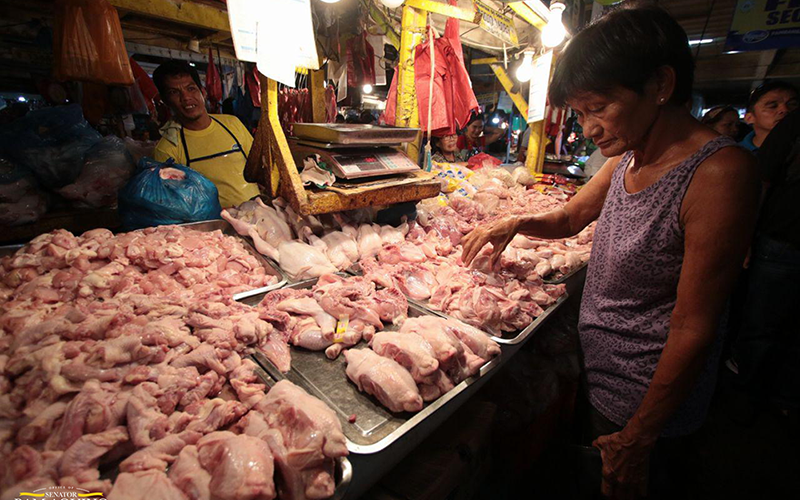
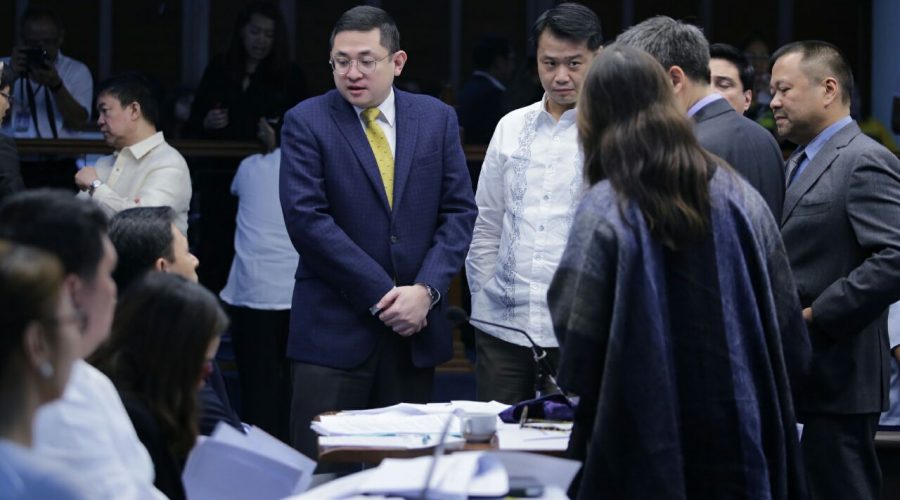
Recent Comments